
Homeopathy is a medical philosophy that has many users effectively worldwide for acute diseases and chronic conditions. It is used by people but given to animals alike to cure diseases in a more natural way. The main idea of homeopathy is to cure the disease from its roots.
It does not only treat the symptoms as in conventional medicine. Homeopathy is derived from the Latin “similia similibus curentur” which means “like cures like”. It is based on the belief that the body can heal itself by producing the same symptoms of the ailment.
Homeopathic medicines are molecule size doses of natural substances. They come from the body system, plants, minerals, or even toxic substances. In cats, homeopathic remedies are very successful.
History Of Homeopathy
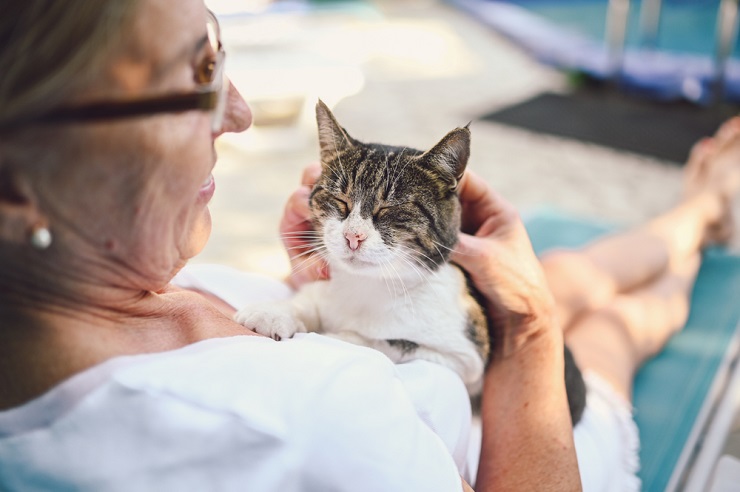
Already in the 4th century BC, the famous Greek physician Hippocrates referenced to the medical principle of “like cure like”. However, over the centuries, this philosophy got lost. It was revived by the German physician Samuel Hahnemann.
He invented homeopathy in the year 1796. Hahnemann used homeopathic remedies also on animals as the beginning of veterinary homeopathy. He experimented to find the minimum dose of the correct remedy that was required to cure a disease.
Disease symptoms are affected by their circumstances and conditions, their so-called modality. Throughout the 19th century, homeopathy became a popular treatment method in Europe and the US.
Homeopathy went out of popularity in the early 20th century due to the steep rise of the mighty pharmaceutical industry. Its renaissance came in the 1970s with lots of interest and fields of applications until today.
Preparation Of Remedies
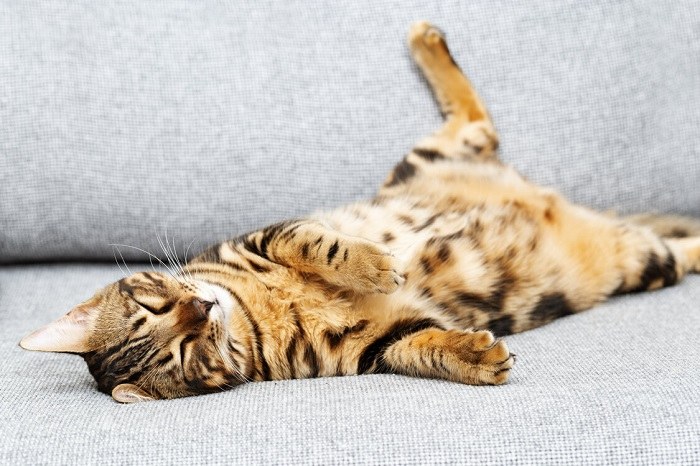
Homeopathic remedies are prepared in a very special way. The doses are diluted and mixed vigorously in the succussion process. This methodical serial dilution and succussion is called potentization. The potentization in homeopathic remedies is available even in the infinitely diluted solution.
Potencies
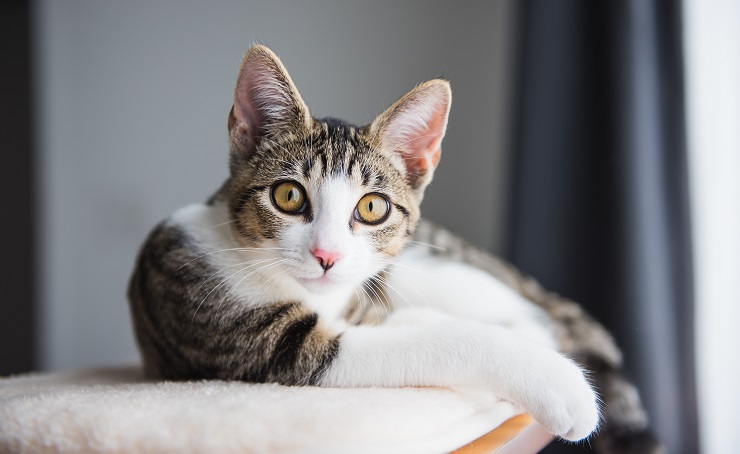
Many people are often confused about the description of homeopathic medicines such as C, X, D or mother tincture. All those potencies are the explanation of the level of dilutions.
For example, mother tincture is the source material, the lowest possible dilution of a substance. C stands for a 1:100 dilution whereas X (or D) is a 1:10 dilution.
The figure after those letters reflects the numbers of doing the dilutions. Those potencies are administered either in little round bits, the so-called globuli, lactose pills, powder, or liquid preparations.
Myths And Bias Of Homeopathy
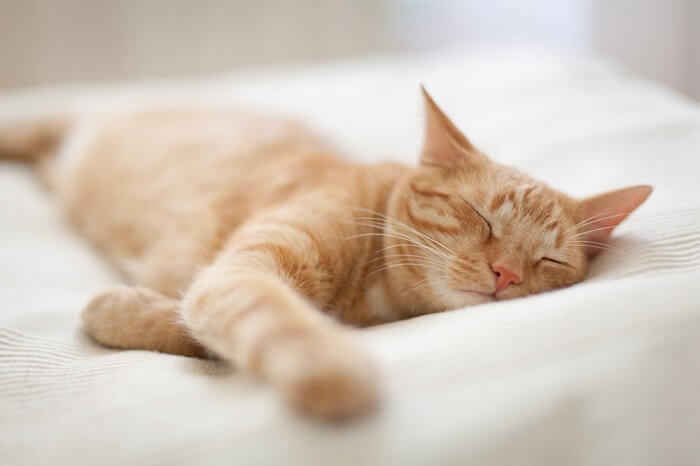
Your practitioner may choose to administer either a single substance or several substances intended to address multiple symptoms.
Some sceptics regard homeopathy as a pseudo-science that does not work or bring any results. Many studies have been done on the inefficiency of homeopathic medicines as the pharmaceutical companies’ lobby is very strong due to the huge amount of money involved.
Homeopathic medicines are usually very cheap, easily affordable, and widely available without prescription compared to much more expensive conventional medicines. Another issue is the fact of lacking replicable research studies and scientific evidence in homeopathic medicine.
The so-called placebo effect is commonly used to describe homeopathic treatment success. This effect means that humans imagine to have received a real drug which can lead to a cure. In veterinary medicine, a placebo effect in animals can be regarded as highly unlikely as animals are not able to distinguish between a conventional drug or a homeopathic medicine.
It’s only the outcome, the cure, that counts in this case. We as trained veterinary homeopaths can clearly see the difference in our animal patients before and after a homeopathic treatment.
Therefore, we know very well that it works even in those cases where conventional drugs are not available or fail to heal the patient.
Use Of Homeopathy
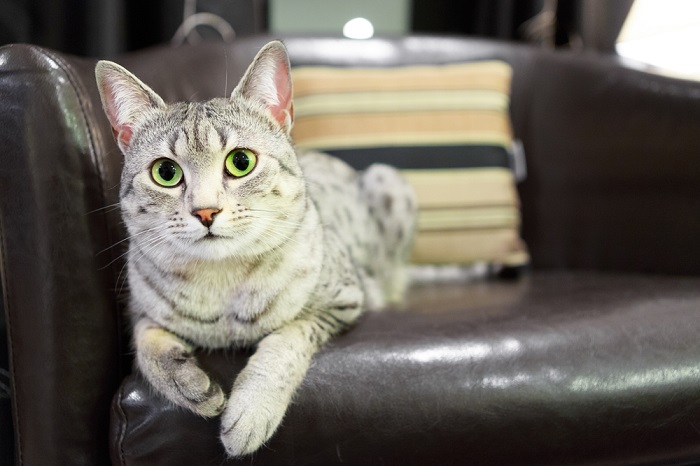
Homeopathy is used for the treatment of a wide number of chronic and acute diseases. Worldwide, over 200 million people use homeopathy, among them 6 million in the US alone. In 2009 already US$ 2.9 billion was spent in the US alone on health care with homeopathic medicines with linear rising tendency.
Benefits Of Homeopathy
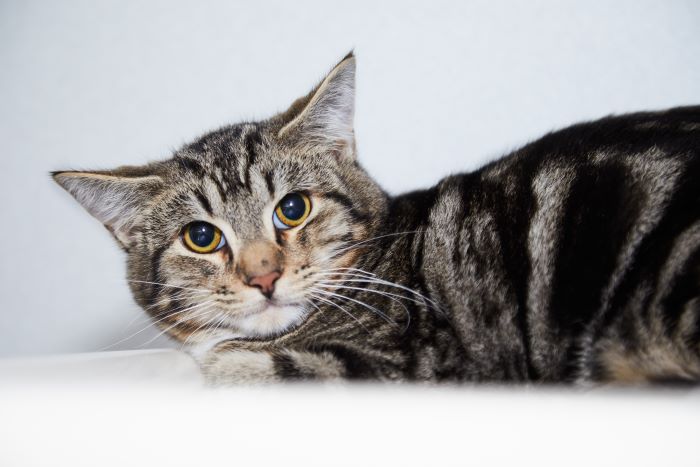
Homeopathy has major benefits compared with conventional drugs. The main one is that they do not have side effects and can be well used for all different kinds of diseases.
In animals, they can be used for a wide variety of animal species. Moreover, they do not destroy the gut and intestinal flora which is the case in antibiotic treatments. Homeopathic remedies do not have a negative impact on the immune system, and they do not cause allergies.
In contrast, there are some dilutions that can help to improve the immune status of the patient. Long term treatment even over several years can be performed without any damage to the organ system.
Its cost efficiency and easy storage helps to use them also in developing countries.
Are Homeopathic Remedies Safe For Cats?
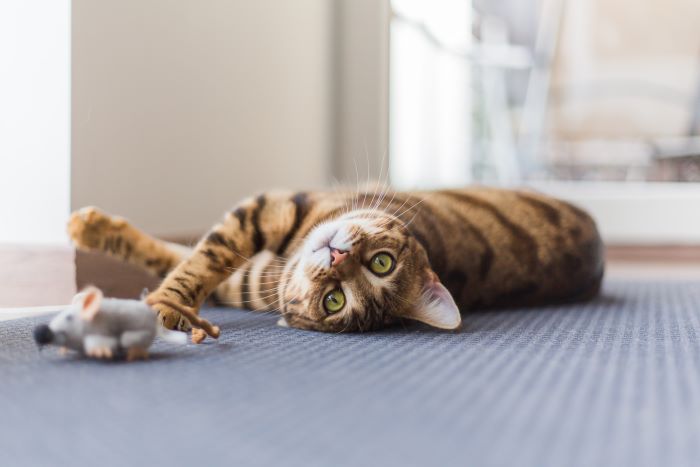
Due to its dilution process, homeopathic remedies are safe as they cannot be overdosed like conventional drugs. Furthermore, they are not toxic.
Can Homeopathic Medicines Be Combined With Conventional Veterinary Medicines?
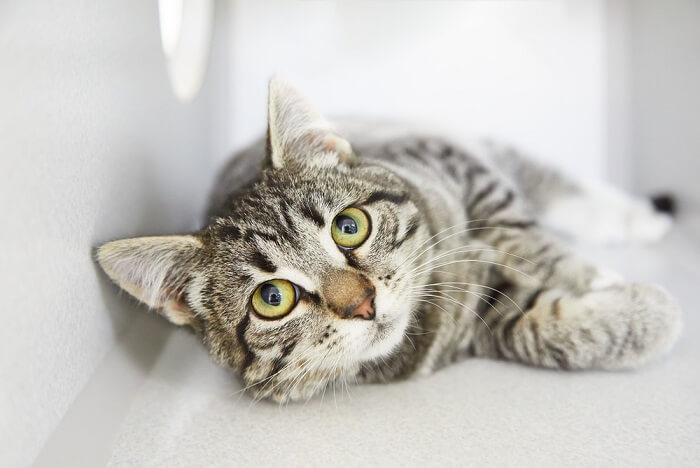
The best way of using homeopathic medicines is always to use them alone as this shows their efficiency very clearly. Thus said, it is very well possible to give the patient a combined treatment with conventional drugs that are supported by homeopathic remedies. This kind of combined treatment can lead to good results, too.
Use Of Homeopathy In Veterinary Medicine
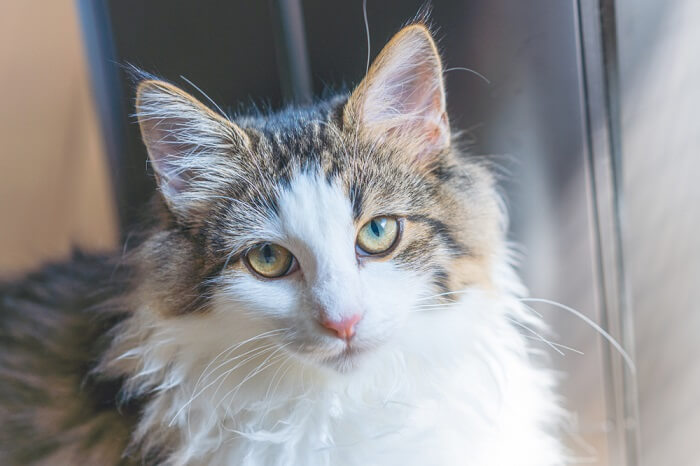
Hemopathy is successfully used in many animal species. Traditionally large animals and farm animals such as cows, horses and sheep were the largest area for their usage.
Nowadays small animals like cats, dogs, rabbits, guinea pigs and exotics are often treated with homeopathic medicines. All different kinds of birds in particular respond very well to those remedies, too.
Special Advantages Of Homeopathy For Cats
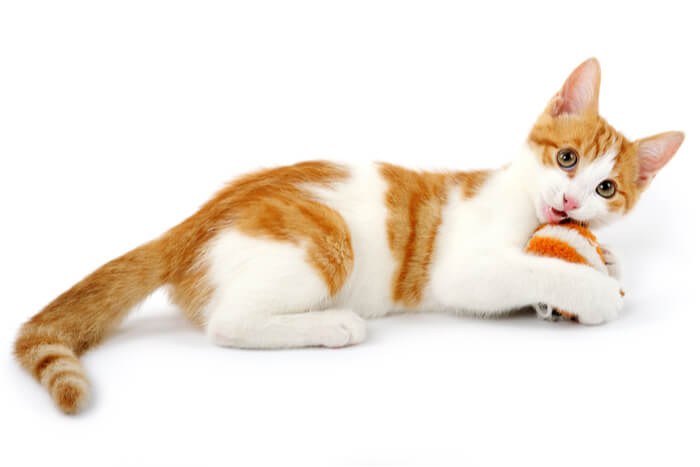
Homeopathic remedies in cats are widely distributed with remarkable success, either for diseases or behavioral problems like anxiety and stress. They can also boost the cat’s immune system which is especially helpful in kittens with respiratory problems such as cat flu.
Homeopathic complex remedies are efficient in conjunctivitis in cats and infectious diseases such as enteritis.
A study revealed that out of 270 cats, the diseases most frequently treated with homeopathy was skin problems followed by kidney failure, hyperthyroidism, and lately also other prominent conditions such as arthritis and overgrooming.
In 80% of the surveyed cats, moderate or major improvement was achieved in cases of arthritis. Skin problems or dermatitis improved in 69.6% of cats, and hyperthyroidism in 66.7%.
Even in kidney failure cases, still a moderate improvement of 57.1% could be observed with homeopathic treatment. This has been confirmed by another study even in the case of chronic kidney insufficiency which helps to stop the progression of the disease. Homeopathic remedies are used even in behaviour trainings of cats.
Quick Homeopathy Guide To Treat Common Cat Problems
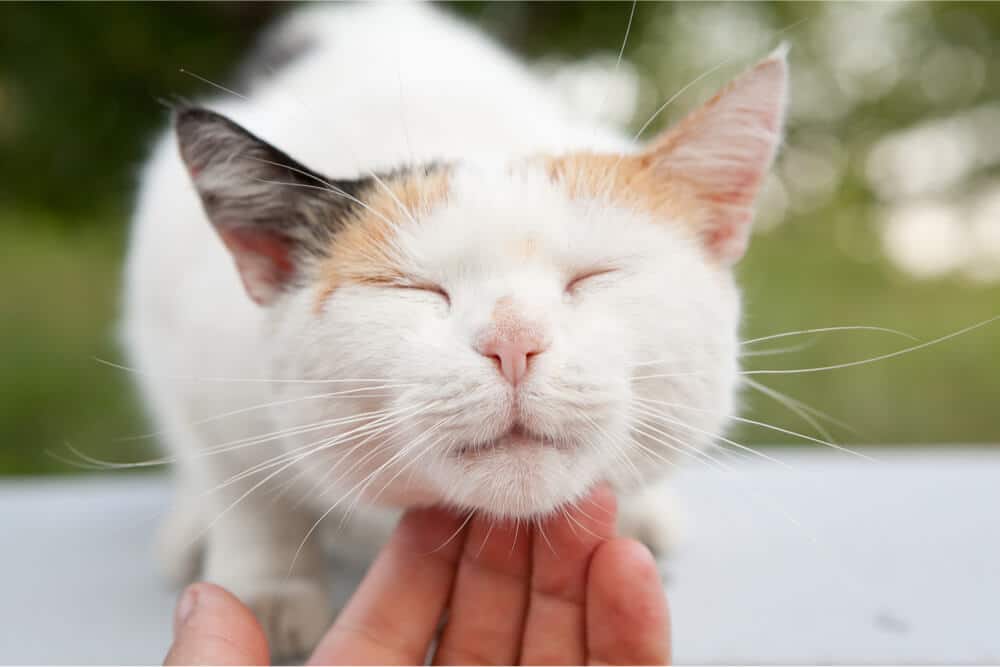
It can be normal for some cats to drool a little when they are very relaxed and content.
Homeopathy Remedies For Gingivitis In Cats
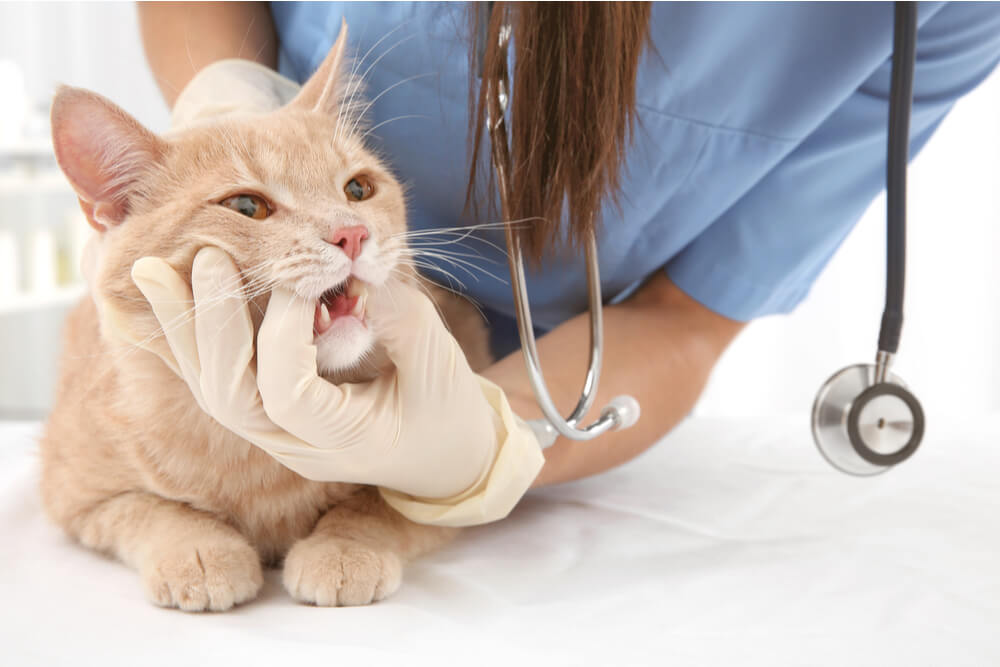
- Belladonna
- Acitum nitricum
- Arsenicum album
- Mercurius solubilis
- Carbo vegetabilis,
- Kreosotum
- Echinacea
Also Read: Feline Gingivitis: Causes, Symptoms, & Treatment
Homeopathic Remedies For Vomiting In Cats
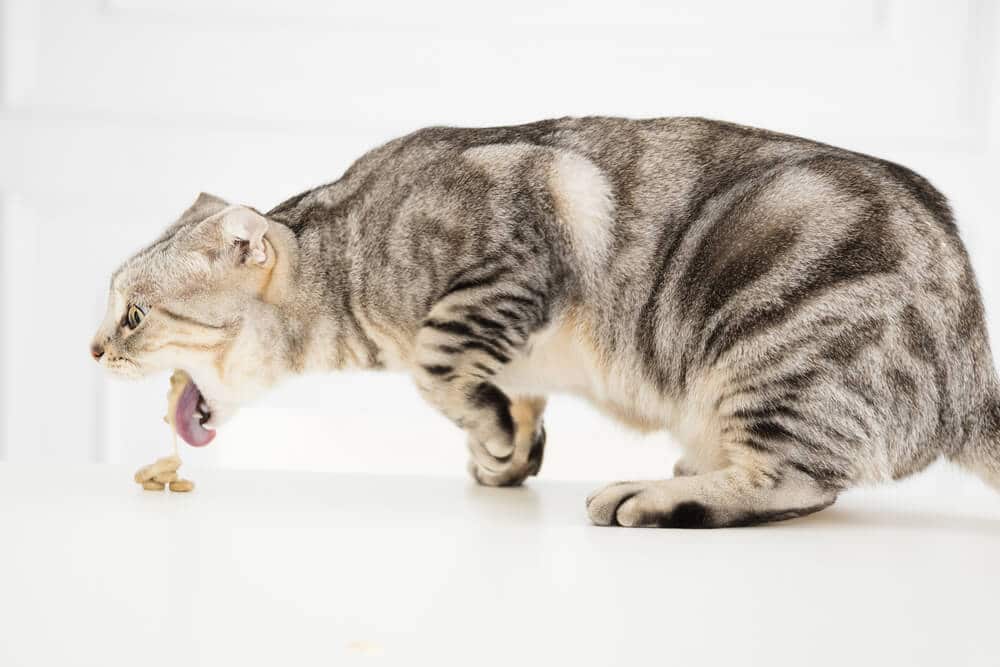
You can identify whether your cat is vomiting or regurgitating by observing him in the act. Regurgitating is quick and looks almost effortless.
- Nux vomica (general gastrointestinal remedy, helps also in constipation)
Also Read: Cat Vomiting: Causes, Symptoms, & Treatment
Homeopathic Remedies For Cats With Allergies
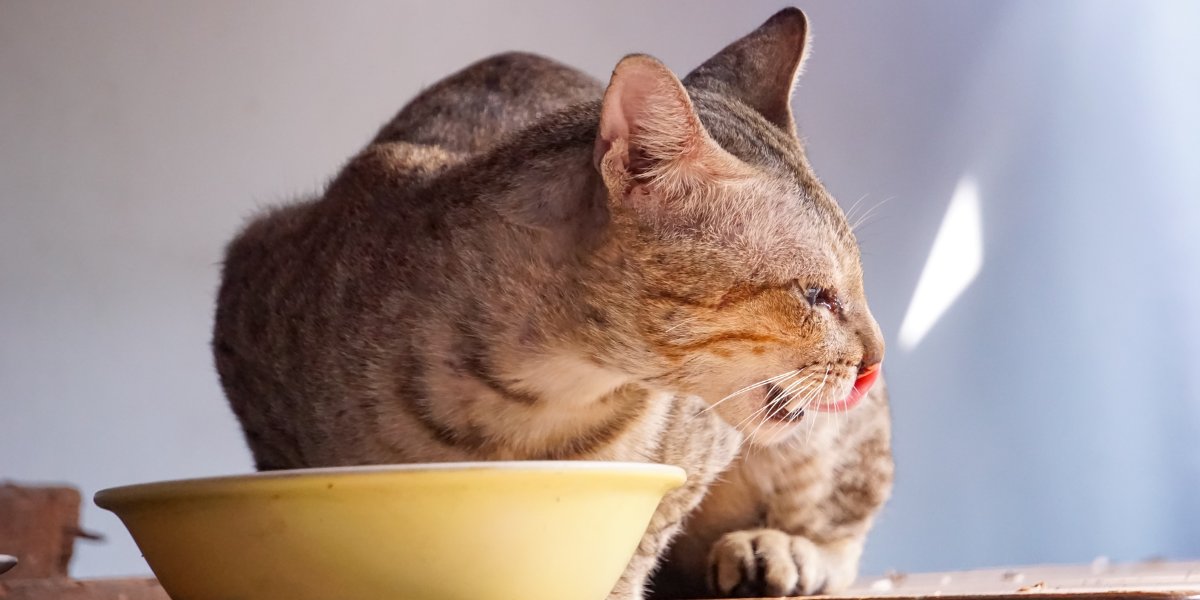
- Echinacea – stimulates the immune system
- Allium cepa – watery eyes, dripping nose, mucous membranes problems
- Natrum muriaticum – sneezing, cough
- Ferrum phosphoricum – swelling
Also Read: Allergies In Cats: Causes, Symptoms & Treatments
Homeopathic Remedies For Dermatitis In Cats
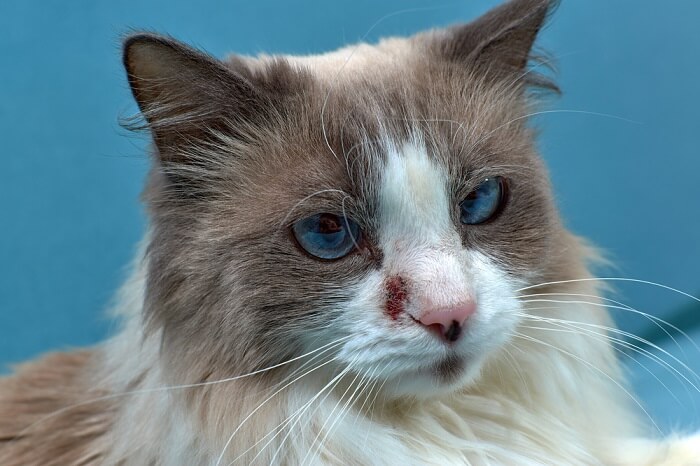
Itching, Scratching, Skin Allergies, Flea Allergy Dermatitis
- Sulphur
Allergies
- Histaminum Hydrochloricum
Skin Abscesses (To Help Open The Abscess), Removal Of Foreign Bodies (E.g. Thorns, Seeds) From The Skin
- Silica
Skin Infections
- Rhus tox
Scalds, Burns
- Cantharis
Also Read: Atopic Dermatitis In Cats: Causes, Symptoms & Treatment
Homeopathic Remedies For Kidney Problems And Cystitis In Cats
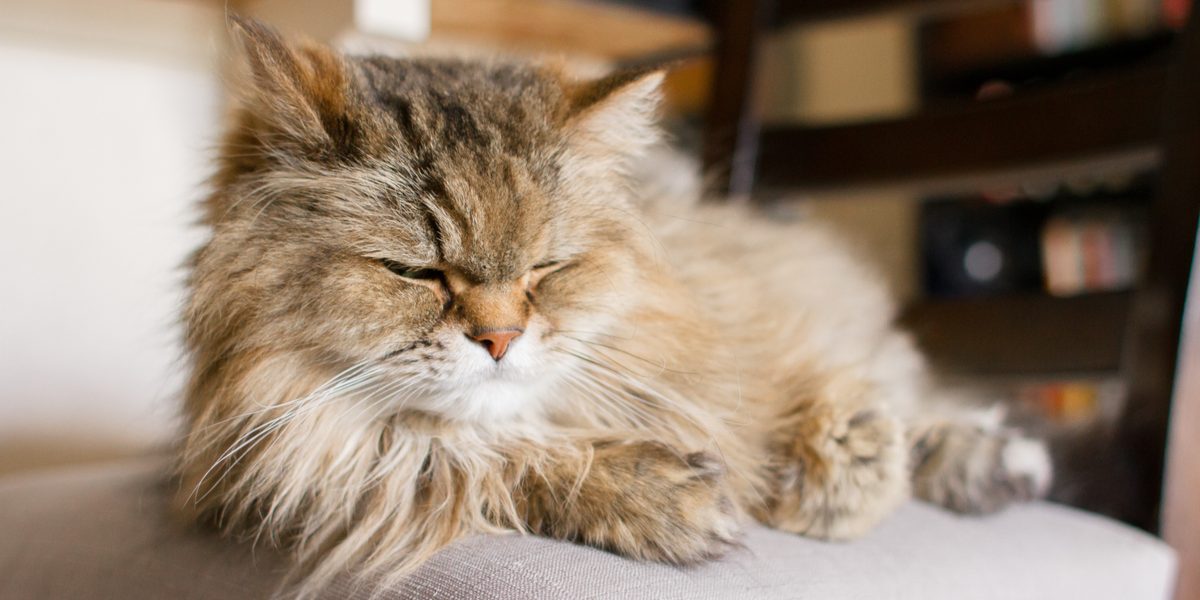
- Cantharis
- Berberis vulgaris
- Solidago virgaurea
Also Read: Kidney Failure In Cats: Symptoms, Diagnosis, & Treatment
Homeopathic Remedies For Pancreatitis In Cats
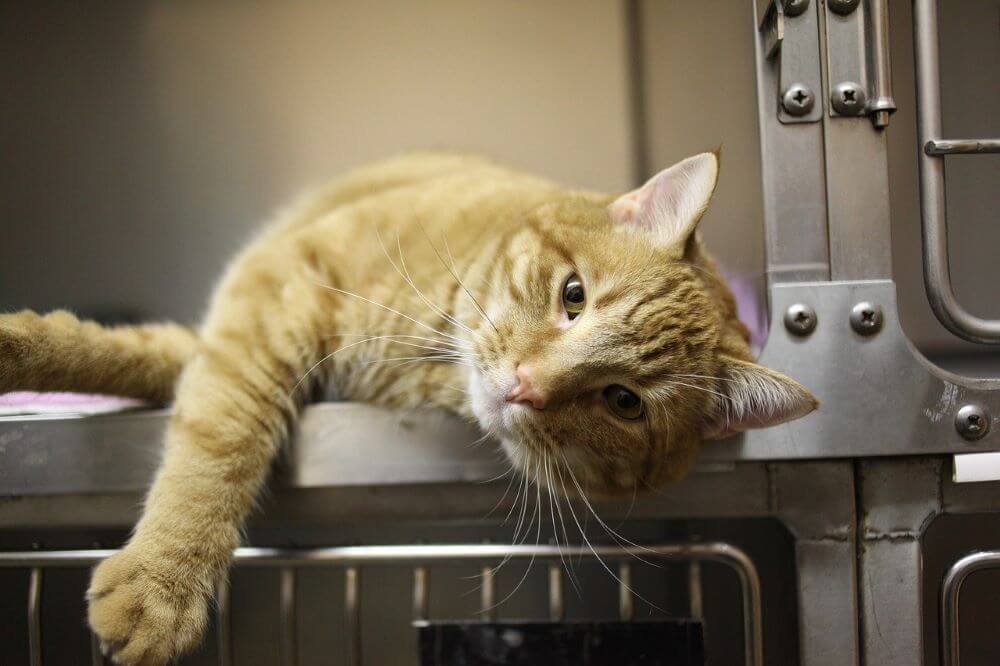
- Pulsatilla
- Phosphorus
- Arsenicum album
- Nux vomica
- Iris versicolor
Also Read: Pancreatitis In Cats: Causes, Symptoms, & Treatment
Homeopathic remedies are most often given as a single substance. Very useful in animals and cats are C30 and C200 dilutions which are among the most frequently used homeopathic potencies. In acute cases like accidents and traumas, the homeopathic medicine can be given every 30 minutes whereas in general the frequency of 1 to 3 times daily is more common.
In veterinary medicine, diseases are frequently treated with complex or combination preparations. They contain a group of carefully matched homeopathic substances in various potencies.
In cats, complex preparations can be recommended very well for anxiety, dermatitis, behavior and kidney problems. Homeopathic complex preparations with additional herbal medicines are used very successfully in cats, too.
Who Is Practicing Veterinary Homeopathy?
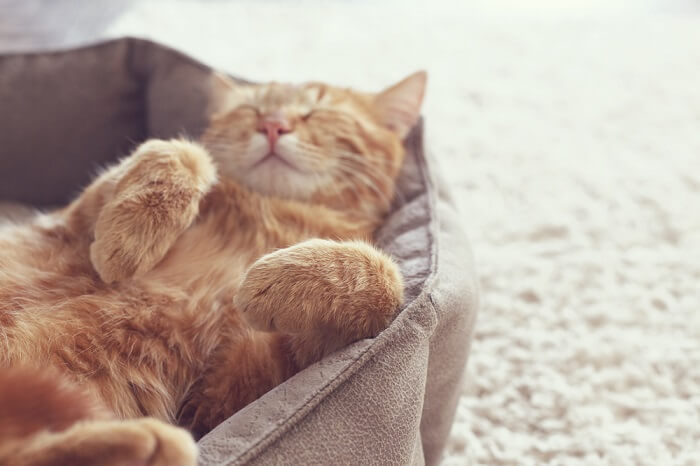
In order to obtain veterinary homeopathy for your cat, you will have to find a clinician who is authorized to practice as a veterinary homeopath.
It depends on the country who is authorized to practice homeopathy. In the US and Canada, their Veterinary Medical Associations determine veterinary homeopathy as part of veterinary medicine.
Therefore, only licensed DVMs can become veterinary homeopaths which has the great advantage that the veterinarian can decide with profound knowledge which kind of medicine for treatment to use in each case.
In Europe, it depends on the country but there is the possibility that a veterinary homeopath or holistic veterinarian is a trained and certified homeopathic practitioner who does not have a veterinary medicine degree and works in a more holistic natural medicine practice with acupuncture, Bach flowers and natural health remedies.
How Expensive Are Homeopathic Remedies?
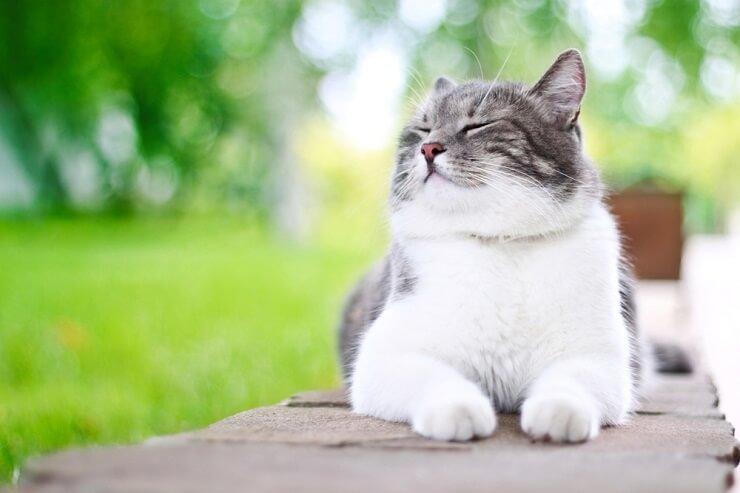
Homeopathic remedies are very affordable and range on average between US$ 4-US$ 10 and sometimes up to US$ 20. They are usually not covered by pet insurances or pet owners require an upgrade of the insurance policy.
Conclusion
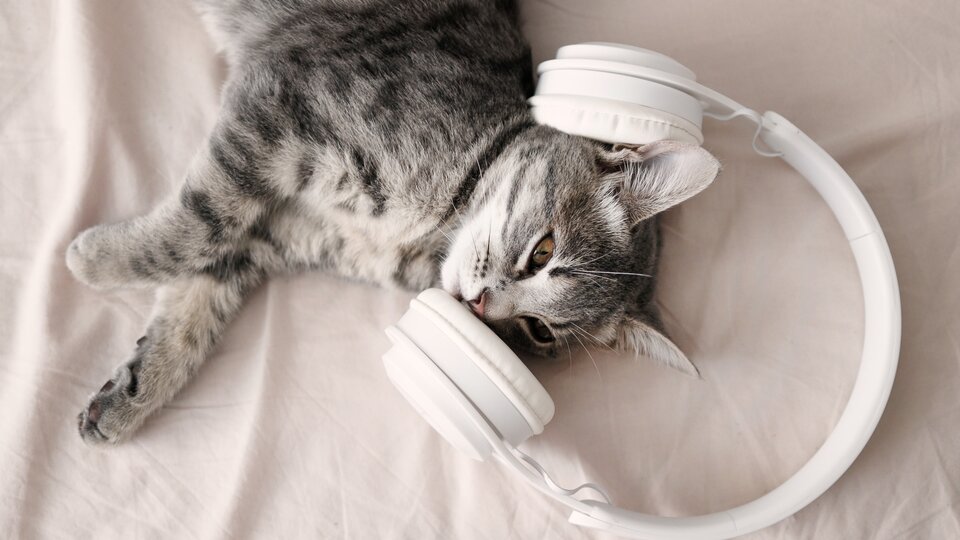
Despite the controversy regarding its efficiency, homeopathy is very beneficial for the treatment of acute, chronic ailments and behavioral problems in cats and dogs and other animals.
It should be in the hands of an experienced homeopathic veterinarian, preferably a veterinarian with homeopathic knowledge.
Frequently Asked Questions
Does homeopathy work for cats?
Homeopathic remedies in cats are widely distributed with remarkable success either in acute or chronic disease. Even behavioral problems such as anxiety and stress can be treated.
What are the side effects of homeopathic medicine?
Homeopathy doesn’t have any side effects. However, an aggravation of the ailment condition is often observed at the onset of the homeopathic treatment. This might be mistaken with side effects.
In contrast, this is the clear sign that the medicine works as intended and the patient’s body starts fighting back the disease by displaying its symptoms.
What is the best homeopathic remedy for pain?
Some of the most powerful homeopathic remedies for pain is Arnica, Aconitum napellus (aconite), Bryonia, Belladonna and Rhus toxicodendron (rhus tox). However, the best homeopathic remedy for pain always depends on the kind of pain, location, and strength upon which the appropriate remedy will be decided.
-
A closer look at veterinary homeopathy | American Veterinary Medical Association (avma.org)
-
National Health Statistics Reports Number 18, July 30, 2009 (cdc.gov)
-
National Health Statistics Reports Number 79 February 10, 2015 (cdc.gov)
-
Beythien, R.. Behandlung der Konjunktivitis beim Tier mit einem biologischen Präparat
Eine Praxiserhebung. BTM, 27(2), 39-46, 2010 -
Anetzhofer, J.. Echinacea compositum ad us. vet. in der Therapie von Infektionskrankheiten. BTM, 10(2), 46-60, 1993
-
Homeopathic prescribing for chronic conditions in feline and canine veterinary practice (facultyofhomeopathy.org)
-
Eichentopf, A., Eichentopf, F. Ergebnisse zur chronischen Niereninsuffizienz der Katze bei biologischer Behandlung. BTM, 47(7), 31-34, 2006
-
Alternative medicines to help with behavioral training (Proceedings) | DVM 360





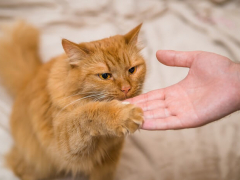
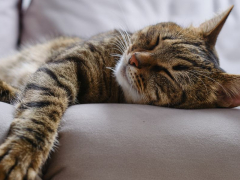

Thank you so much for everything that you do and for all the amazing info you have provided!!! I am so happy to have found this page!
Hi , my partner and I , along with our kitty, have mold exposure. Our cat is uncharacteristically lethargic(very sleepy) and eating grass and throwing up a couple times a day. What homeopathic would you recommend for her. As well , what binders are safe for cats? Thank you
If your cat is experiencing recurrent vomiting, we recommend taking them to the vet to diagnose any underlying issues and recommend treatment.
My cat suffers so much from stomatitis. She had a full mouth extraction several years ago and unfortunately that did not help her. Precious is very spicy and I cannot medicate her at all. Is there a remedy that I can put in to her drinking water? I feel so bad for her. So much pain. I appreciate your ideas.
Hi Lynn, I’m sorry your cat is in pain! With severe cases like this, we recommend consulting a veterinarian. Hope you find something that provides your cat some relief!
This is extraordinarily disappointing. I had been using this site as a reference when choosing foods for my cat. The fact that this absolute quackery is allowed to be advertised here is shocking to me particularly given how dangerous homeopathy can be for animals. I see commenters here asking for homeopathic advice about serious medical conditions. This could and does prove fatal for many animals and it is extraordinarily irresponsible to advocate for anything other than *clinically* proven treatments for sick animals. The idea that there would be a single molecule in the common dilutions provided in homeopathic ‘medicine’ is patently false. And the notion that there is any convincing scientific evidence for homeopathic treatments is similarly false. But then, the author goes on to discredit the scientific method so… I had thought this site used science to justify its recommendations on nutrition etc. Now I feel otherwise.
99% of sites are mainstream medical. One of the few that is experienced in homeopathy and you have to attack and destroy in your ignorance. Go elsewhere if you don’t like it. People should be free to choose the medicine they want without the thought police jumping all over them.
This is extraordinarily disappointing. I had been using this site as a reference when choosing foods for my cat. The fact that this absolute quackery is allowed to be advertised here is shocking to me. The idea that there would be a single molecule in the common dilutions provided in homeopathic ‘medicine’ is patently false. And the notion that there is any convincing scientific evidence for homeopathic treatments is similarly false. But then, the author goes on to discredit the scientific method so… I had thought this site used science to justify its recommendations on nutrition etc. Now I feel otherwise.
Thanks for bringing this to our attention, Talia! You’re right, this article could use an update to reflect the evidence-driven approach used in many of our more recent health articles. I’ll pass your critique along to our editorial team to see what we can do about this.
Thank you. I am very glad to hear you are in agreement. I apologise for the duplicate comments– I thought my initial comment hadn’t been posted and I made a second attempt. I look forward to seeing how this article is updated to correspond more closely with the scientific consensus.
I am looking for dosage advice on Histaminum Hydrochloricum 30c.
I have a 13 lb.5 year old indoor only cat with skin allergies. There are no fleas, but a lot of scratching. He has sores/scabs mainly around his neck & head. He does not wear a collar, and his litter is unscented.
I used this years ago on a different cat, with great success. It has been so long ago that I’m not sure how much to give my current cat that is described above.
Thank you for your advice in this matter.
Hello Samantha, apologies for the late reply. Unfortunately, we do not have a homeopathy expert on our team, and we cannot make any recommendations in this area. However, I can recommend some conventional treatment routes that should help your cat with his skin irritation. You can learn more about that here. If you can, I would recommend identifying what your cat is sensitive to and removing that from their diet and/or environment. Wishing you all the best!
my cat is paralyzed i have to express her pee and poop multiple times a day. She has always been frequent to UTIs and has been on 2 different antibiotics multiple times. Her regular vet closed down recently and she now has another UTI. I have someone that runs a resuce that follows my instagram for my cat there is quite a communtiy that help each other through there she is trying to help me go the homeopathic route so she has been consulting her holstic vet and has sent me some remedies but to no avail none of them have helped the infection. Is there any remedy that will actually treat the infection or should i bring her to a new vet and get her back on antibiotics. She also bought my cat about 14lbs of raw food which she loves but i am getting very mixed reviews on wether raw is good or bad some people are all for it then i have people telling me im horrible for feeding her raw. what are your thoughts and opinions of what i am going through infection wose and food wise? any info would be a huge help! thank you in advance!
Hi Jenna, thank you for reaching out. Regarding the homeopathic remedies, I would consider traditional remedies as an alternative and in addition to the conventional medicine prescribed by your vet. For example, D-Mannose is well-regarded as a home remedy for urinary tract infection in cats. Dietary support can also help with urinary tract infection and another urinary issues. Explore our recommendations in this guide to the best cat food for urinary tract health. As for the question about raw food, it really depends on which raw food you choose and how you handle it. Carefully-handled, appropriately-prepared raw cat food can be an excellent choice for your cat. You can learn more about our recommendations here. Hope this helps! All the best to you and your cat.
Dear Team,
Please could you advise me regarding my 15 yr old cat Salty.
He’s a Turkish Van, loves the sun and despite years of sun creaming his ears with Factor 50 suncream, 3 months ago, firstly developed a keratenous hard horn that grew tall and slim from the back of one of his ears.
He repeatedly scratched his ear and the horn is no more, ripped off weeks ago. Now in its place is something that looks like a bleeding ulcer but could well be a tumour. The growth is irregular and taking over his ear at the base. The vet recommends removing his right ear while there is still a margin and as the lump is now infected. Salty is now on day 3 of 7 days antibiotics.
The horn (before it fell off) responded well with small pipettes of Ranunculus Bulb. 30C and Thuja 30C diluted. I chose Thuja as he has elements of dark crusts appearing on his ears. The horn dried up black and then fell off. A lump grew back the next week and has refused to leave.
Last week the lump bled badly when he scratched a piece off the lump, so I re-started Homeo with Nit-acid 30c larger dilution to help stop the bleeding. He started scratching 3 days ago again, and ripped the lump off again. I have now begun Carcin. 30C diluted, small drops every day. He is sleeping and much calmer this evening.
How long will it take to respond to Carcin?
Is this only something that surgery can now fix just incase it is cancer and it starts to spread further?
Lump is presently 1.5cm in diameter, with a raised base coming out from the ear tissue. It always is crusty hard on the top, before it gets attacked by Salty.
Bleeding is profuse when attacked.
His OP is pencilled in this Friday. Is there anything I can do to shift this lump that has a good hold on his ear.
Do we need more time for Homeo, or has the time come to the end? I dont really wish him to lose an ear but equally I dont want him to pass, he is a very healthy cat and goes out every day, eats well and plays. My son is Autistic and quite devastated at this news.
Thank you for the opportunity to contact you, I am sincerely grateful for any advice you can give,
Sarah
Hello Sarah, and I apologize for the late reply. Unfortunately, I’m unable to provide advice on veterinary topics, and we no longer have a homeopathy-specializing vet writer on the team. I can only recommend that you consider the results of your vet visit and plan treatment accordingly. Hope your kitty is doing well!
Hey
SO glad to see this article. I am using homeopathy on my dogs but have been reluctant when it comes to my cats due to tincture as it is often alcohol-based….Is that a problem for cats?
Best wishes
Sys Vad – Denmark
My 16ish year old cat, discussed 5 comments or so above, is doing a bit better. I took him to the vet once more, a third time, to have his teeth looked at, they are fine. He is down to 7 pounds due to his total lack of food consumption for more than a week. He was drinking, thank God. I started him on cbd oil two days ago, three drops, cod liver oil, and mct oil. I use a dropper to administer. I suspect the cbd helped. He is eating raw milk yogurt now for the last two days. I am able to add in chicken flavored Churu. He still is snotty and stuffy, however, if he continues to get good nutrient dense food and puts some weight back on, I hope to work on those issue too.
Thank you, Mallory Crusta!
The best intel I have on this is that it is most likely calcium oxilate crystals and the vet won’t know that until after surgery by sending the stones off to be assessed by a lab in Kansas. Thank you for the thoughts on lithotripsy. I hadn’t thought of that at all. I’ll call around and see what I can find out. We have two technologically advanced vets in the area and if they don’t have the equipment they probably know of a vet who does.
I recently adopted a rescued cat and have had her spayed and she has now gotten all her vaccinations. I took her to the vet to have her checked for a UTI because she was in the litter box every 15-20 mins but only urinated a few drops. It turns out her Urine was very bloody (dark orange) and even after antibiotics did not yield to the treatment. Xrays show two good sized stones in the bladder and small stones in or forming in the kidneys. Help please! What can I do for her? She’s a short haired tuxeudo cat, 9.66 lbs and over 5 years old. I’ve had her 6 months. The vet I took her to said surgery, $1104.
Hello Debora, that’s a really difficult question! It makes sense that antibiotics wouldn’t change anything, because crystals aren’t a bacterial infection. In all likelihood, the vet prescribed antibiotics to treat any possible infection while they worked on a diagnosis. I can’t recommend that you ignore the vet’s advice of getting surgery, given that they have a much better understanding of your cat’s unique situation, but surgery is generally recommended as a last resort in this case, and it’s both expensive and risky. It should be pursued after other options are explored, like hydration and diet. A prescription diet can help to dissolve both struvite and calcium oxalate crystals, and if you know what type of crystals your cat has (ask the vet), you may be able to develop a diet on your own. Generally, a species-appropriate, high-moisture diet (made primarily from meat) will have the appropriate pH and ash content to facilitate better urinary health, but a prescription diet may be needed in the short-term to help your cat recover. Another option is extracorporeal shock wave lithotripsy, which is a therapy that uses sound waves to break up the stones. It’s expensive, but it is a noninvasive way to get rid of kidney stones without hurting your cat. Hope this helps! Wishing you and your kitty all the best.
I have a 16ish year old male cat. I believe he had a nasal infection that went on for too long that created nasal polyps which made it hard for him to breath and eat. He had an antibiotic shot and a steroid shot and he improved within a day. He was spunky and happy. It only lasted one month, however. Again, he is having a hard time breathing and eating, I suspect polyps. He is also having some nasal discharge. I did take him back to the vets, but they had no course of action.
I have given him homeopathic silica as that is what I had that might work. I ordered teucrium marum and lemnar minor hoping to shrink the polyps, it has not arrived yet. He isn’t eating well and has lost weight.
Any suggestions?
Thanks,
Nancy
Hello there, I apologize for the late reply and hope your cat is feeling better! These are really troubling symptoms, and unfortunately, I’m not qualified to give you a good answer. I would recommend placing this question in our health board in the Cats.com Community Forum. There, a veterinarian will be able to give you a better reply. Again, my sincere apologies for the late reply—you’re in a tough spot, and you deserved a faster response. All the best. – Mallory
Hi! I have a 20 year old male cat that has chronic kidney disease (he’s had it for about a year or so) and he gets iv fluids once a day. He also has diabetes and arthritis. He’s had a bit of a limp for a few months and the last few days its seems to be getting worse. Vet prescribed gabapentin as needed basis (he just started today and it hasn’t made much difference yet). I have some pet arnica/ arthritis relief drops I got online and wondered if they are safe to use with his kidney/ diabetes and the gabapentin. I cannot find a local vet that treats homeopathically to ask this question. I am desperate to help my boy. Thank you.
Hey Ivette, this is a question a bit out of my depth as a non-veterinarian without homeopathic training, so I’m going to refer you to the veterinary moderators in the All About Cats forum. Hope this is able to help!
I find Hepar works very well when I realize my cat may have been bitten. If an abscess is starting it is cleared up quickly.
Hi there, I was super excited to stumble across this page! I have used only homeopathy to treat my family for many years and also have been treating my dogs with it. Even my hamster and fish! My cats have never needed it though, but for the last few months they have been sneezing / coughing on and off. There’s no discharge from eyes or nose, but I can hear that there’s mucus. I have tried a couple of remedies and it would clear up for a couple of days and then be back again. I saw on your page nat mur for sneezing / coughing, and allium Cepa for mucous membrane issues. Is that what you would suggest in this case? And if so, would they be used together or alternated? Thanks in advance.
Hello Debbie, I’m afraid I can’t give any advice on homeopathy at this time, and we no longer have a vet on the team who specializes in this area. You may appreciate this article on the subject (though they are trying to sell their own homeopathic remedies): https://www.homeoanimal.com/blogs/blog-pet-health/natural-remedies-cat-cold-coryza
Hello – I don’t know if you still respond to this post but am so desperate for advice, expertise and non-conventional wisdom. Last Tuesday, I took my 15-year-old female cat in for a dental cleaning. She has never had her teeth cleaned and hasn’t been put under anesthesia since being spay. Upon picking her up I noticed she was coughing and expelling long strands of mucus from her throat. For the next 48 hrs, she was wheezing, coughing, gagging etc. I took her into the vet Thursday morning, they gave her antibiotics, steroids, and an appetite stimulant. She didn’t get any better that day so that night I took her to the emergency clinic where they took an xray and diagnosed her with a collapsing trachea. I was told and have read it is rare in cats. If this is an accurate diagnosis, I don’t want to keep her on steroids if possible. Any advice for something more natural or do you know a vet that has experience dealing with this? Money is not the obstacle. I know she is old, but I believe she has much more life in her. Thank you.
Audrie, I’m sorry it’s taken me so long to get back to you! I was on vacation and taking some time away from All About Cats. Unfortunately, Dr. Muller is unable to reply to comments on this post, and I am no longer able to reach her by email, either. I’m not a vet, but what you’re describing sounds like it may be a tracheal rupture, which is more common during dental procedures than any other procedure and is the result of a mistake on the part of the veterinary staff. The symptoms of tracheal rupture are similar to what you’ve described. You can learn more about this issue here. Given that it showed up right after the dental cleaning, I would suspect that this tracheal damage was caused by improper intubation—most likely over-inflation of the tube’s cuff. I’d recommend going in to get a second opinion (from a different vet) and mention that you’re concerned about this showing up right after a dental cleaning. Pain medications are appropriate, but rest and oxygen support are also advised. Some cats will also need a drain to remove air from under the skin. Hope this helps.
My sister’s kitty has kitty asthma. What remedy would be appropriate?
Hi Kathleen, we have a full article on feline asthma here. As for homeopathic remedies specifically, homeopaths will generally recommend a different remedy based on the patient’s individual needs. If you’d rather a one-size-fits-all, leading homeopathy pet remedy brand Homeopet offers a product for this issue. Hope this helps!
Dear Dr. Muller
My sweet kitty has small cell lymphoma for the past year and half. He had taken Chlorambucil for 11 months. Spoke with oncologist, nutritionist and a top university specializing in feline health. Besides supplements (Probiotics, Celloquent, pet enzymes) and oils, he is given low dose Depo Medrol, B12 and fluids once a month. It was also suggested to add Fenbendazole (apparently kills cancer cells) to his supplement diet, but we are not approved to proceed yet from the oncologist. No one can help any further.
Can you recommend any homeopathic products that would target only cancer cells? Greatly appreciate your assistance and advice.
Carol
Wantagh, NY
Hi Carol, unfortunately, Dr. Muller is unable to reply to comments on this article, and we can’t give veterinary advice. You may be able to get some insights from the expert veterinarian moderators in the All About Cats community here. Wishing you all the best!
Thank you for responding. Your attached article is very helpful.
Hello Dr. Muller,
My 5 year old Burmese kitty has ongoing eye problems and has surgery 2x to remove sequestrum. I have been told this will likely be a lifelong problem.
I am a big fan of homeopathic remedies for myself and have used them since the 70’s.
I really want to know if there is a remedy for my kitty (Annie) that might help her dislodge the sequestra in the normal course of events or/and help her not form them anymore.
I would be so grateful for your opinion.
Hello Jean, unfortunately, Dr. Muller is not able to reply to comments on this article at this time. Treatment and prevention of sequestrum depend on the cause of the issue, though it sounds like your cat may have a genetic predisposition as a Burmese. This article from Jane Doyle, DVM, CVA, addresses a few homeopathic solutions to eye problems in cats.
Sorry spelling is not great there
oily fur and dry skin please
Oh I love this I am just learning about homeopathy with animals aswel Thankyou for this amazing information .. My eldest girl is 22 and is blind and a little deaf , she use to have seizures until one day I put her on pumpkin cbd oil .. Wjat would you recommend for dry skin but an ok my coat as doesn’t wash herself anymore either please
Hi Anita, so glad you’re working to help your 22-year-old kitty feel her best! A cat who’s not grooming likely feels ill or sore, so supplementing her diet withBest Omega 3 Fish Oil For Cats should help with both any joint pain and support overall skin health. A good probiotic like Fortiflora may also help to fight inflammation and help her feel her best. As for homeopathic solutions, Only Natural Pet has a product made for pets with dry skin. The product is primarily made for cats with itchy skin, but it’s possible that she’ll experience some relief from dryness and the results of poor grooming. Hope this helps!
Fortiflora is made by Purina and is not Holistic nor is it an actual live probiotic!
In what way is it not a live probiotic?
Hello, does Dr. Muller do phone consultations? If not, can you recommend an experienced homeopathic vet who will do phone consults or video consults? Thank you.
Hey there Veneta, I’ve tried to reach out to Dr. Muller and have not been able to contact her for a while, but you may be able to reach her via her site: https://www.margitmuller.com/contact-us/
Wishing you the best!
can you crush a homeopathic pellet if a tincture is not available in a drop or two of distilled water so it can then be sucked up in a needle and if so how many pellets should i use since human quantity is 5 and are cats subject to the same restrictions as people 20 minutes before or after food?
Hi Sera, thanks for the question. You can mix pellets with water to create a liquid treatment. This article has some instructions you may find helpful. Just don’t mix in brandy—this is unsafe for cats! The article also covers dosage. Just as is recommended for humans, it’s advised that cats wait 20 minutes after eating before taking a homeopathic remedy.
Hi,,
I have been using homeopathy fir me, my family and my pets (cats, rabbit) for a long time. But usually, it is something like cold or diarrhea. But recently my 12-year-old cat got diagnosed with pancreatitis and diabetes and she has been on insulin (Glargine 1.5 units) twice a day. In addition, she eats special food for cats with diabetes called w/d from Hills Science diet. I would like to give her homeopathic medicine too and I even bought a book call Homeopathy for cats. That book recommends Syzygium 1X-3X which is not an easy homeopathic medicine to come by- like Pulsatilla or Nux Vomica. I can get some via Amazon as 1X tincture or as globule (that comes as 30C). 1X might be easier to give to my picky cat but how many drops should I give? Usually for globules I give 2 globules twice a day (which may not even be the correct dose).
Thanks for your help.
Prakriti
Hi Prakrti, thanks for commenting. Unfortunately, Dr. Muller is no longer able to comment on this post and cannot provide advice. I would recommend talking with a homeopath in your area. You may also want to talk with your regular veterinarian for advice on treating pancreatitis and diabetes.
Thanks Mallory for your suggestions.
Prakriti
I think my 4 year old cat has feline asthma. (I sent a video of her to vet and that was his guess). She extends her head from her body and coughs, with nothing coming up (so not hairballs.) I’ve treated her with Thuja in her water bowl. While this lessened the coughing she is still doing it a couple times a day. Can you suggest anything else? Side not, I’ve used homeopathy for years for myself.
Hi Lee, thank you for commenting. Unfortunately, the original author of this article is unable to reply to comments at this time, but I would consider reading this guide to natural treatment for asthma in cats. I’m not a vet, and the recommendations here are not veterinary recommendations. However, you might find them helpful as a complement to whatever your veterinarian recommends.
Really need some advice here. I have a cat that’s 17 now with hyperthyrodism and has been on a dose of 1.25 mg I believe for some years now. The other day at the vet they said liver numbers were elevated and said she needed to double her doses. Now she is ill, hiding in places never before because she isn’t well, not eating, weak, having tremors and I want off of this medication immediately. Is it safe to switch or what would the process be?
Hi Ben, that’s a really difficult question. If you’re not comfortable asking your vet about taking her off of the medication, I would try talking with another vet about it. There are a lot of factors that go into how and why your cat is responding to this medication, and we can’t give advice based on this description alone. You might also be able to get some more input from our veterinarian moderators in the All About Cats Community. Hope this helps.
Best,
Mallory
I read the article on treating cats with hyperoidism with homeopathic remedies
My cat is 13 years old and on Methimazole 2.5 mg twice a day. She also is being treated for IBD with Budesonide 1 mg tab once a day. Pror to the Budesonide she was on Prednislone 5 mg twice daily for 3 months and she developed high glucose levels while on Prednislone. She now is diagnosed with diabetes. She is not on insulin as I don’t want to inject her twice a day as it can be difficult just to administer her daily pills
Can you give me information on homeopathic treatment for her IBD and/or diabetes? I would like to find a homeopathic vet in my area. All of this started 10 months ago. I adopted her 7 yrs ago from a shelter.
Any info would be helpful and greatly appreciated.
Which are the best companies that we can buy liable homeopathic remedies from in Canada or in the US for cats?
Thank you
Hi Andrea, thanks for commenting. HomeoPet is probably the best-respected brand in this category. They offer a broad range of products that purportedly address a wide variety of issues in pets. Hope this helps!
I HAVE 3 CATS. ONE CONTINUALLY CHOKES TRYING TO BRING UP HAIRBALLS. I GIVE HER THE OVER THE COUNTER TREATMENT BUT IT DOES NOT SEEM TO WORK FOR HER. WHAT HOMEOPATHY REMEDY WOULD HELP HER. I AM CURRENTLY LEARNING ABOUT HOMEOPATHY AND LOVE IT!
THANK YOU
Hi Lynne, thanks for the comment! Unfortunately, I’m not a veterinarian and can’t give medical advice, and homeopathy is not an area in which I’m well-versed. However, I would start by identifying the underlying cause of her choking/coughing, and address it first. For instance, frequent hairballs can be addressed with several common remedies and/or dietary changes, about which you can learn here.
Hi — I’m so desperate for help for my cat with chronic ear infections, with smelly odor and irritation and some black bits of discharge. The vet in the past has treated for mites but it’s only one ear and never spreads to his other ear or my other two cats, so I really feel it’s a chronic ear infection. It’s been a battle for a few years now and I can’t find something to clear it up permanently. He HATES me cleaning his ears or trying to treat them. Any advice on homeopathic remedies for this issue? I have quite a stash of remedies of my own.
Hi Abby, thanks for commenting. Chronic ear infections can be quite frustrating, and the key is to keep seeing the vet and updating them on your cat’s progress so that they can reevaluate and make sure he receives the appropriate treatment. As for homeopathic remedies, unfortunately, I’m not a vet nor an expert on homeopathy, and Dr. Muller is not available to reply to comments at this time. Instead, I can only advise making sure that your vet has properly diagnosed the origin of the infection and is prescribing medication in accordance with that diagnosis. If it’s determined that your cat really does have mites, you’ll need to resolve that infestation. However, what started as a simple ear mite infestation could have become a secondary infection. It’s important to deal with all aspects of the infection methodically and appropriately, and again, followup visits are critical to ensure that your cat stays on the right track. I hope this helps at least a little bit.
Best,
Mallory
Hi ! Our one year old male cat is marking territory all around the house . . Could you please suggest what to do to make him stop ? Thank you very much!
Hi Magda, thank you for commenting. I would first confirm that your cat is, indeed, marking his territory. This is more common among unneutered male cats, especially if there is some territorial threat other issue making him feel that he needs to mark the area. However, urination outside of the litter box is often mistaken for marking when it’s actually a sign of stress or health problems. If your cat is neutered or is exhibiting any other signs of health or emotional problems, I would recommend seeing a vet. Otherwise, here’s an article on how to stop your cat from spraying. Hope this helps!
I have a kitty that is a little over a year old. He has been neutered. Periodically he scoots his butt on the carpet and I would like to treat this homeopathically. Do you have a suggestion? As for his diet, I feed him Farmina N&D…not sure if this is a good brand, but am eager to learn what a good diet is in order to preclude disease and problems.
Thank you so much for your insight!
Hi Lissa, good question. Have you tried alternatives to homeopathy for this scooting? To my understanding, that kind of behavior generally stems from anal gland or GI issues, and once you’ve figured out the underlying cause, the appropriate course of action should become clear. You can learn more about scooting, its causes, and how to treat it here. You may get some ideas for the appropriate diet by reading that article as well. – Mallory
Hi I have been reading nux vomica is helpful in digestive issues with cats. I am unsure to get the 6c or 30c and how many pellets to dilute? If you could help I and my little girl, Georgie would greatly appreciate Donna
I have a semi feral kitten about 8 weeks old. We’ve had him for quite a while and he is usually very outgoing, friendly and energetic. Over night he became very lethargic, is isolating and hunched over and laying down. He has no appetite but is drinking water. He looks terrible. We took him to the vet, did many tests and blood work, which revealed nothing but a fever of 104 and slightly elevated neutrophils. Gave him fluid, antibiotics and probiotics. I’m wondering if there is a homeopathic remedy that would be helpful for him? Especially for the fever. Thank you!
Annie, I’m sorry that you weren’t able to get a diagnosis. Has this kitten been vaccinated? Have you ruled out any possible infections or common diseases affecting kittens? While I personally can’t give recommendations on homeopathic remedies for fever (neither a vet nor an expert on homeopathy), you might appreciate this article on the subject: https://hpathy.com/veterinary-homeopathy/how-we-prescribe-for-animals-a-case-of-sudden-high-fever/
Hello,
Two weeks ago, two kittens (in a taped box) were left on my porch. They appear to be three weeks old. One kitten was fine and the other had an upper respiratory infection. I was able to treat the sick kitten, and he is fine now. However, now the other one appears to have pink eye. I have been treating her with the same remedy that I used on the other one. It has helped some, but I think I need drops. Do you have any ideas or recommendations? I will take the kitten to the vet if necessary, but would rather treat it at home.
Thank you in advance for your advice!!
Hello Amanda, the appropriate treatment really depends on the cause of your kitten’s pink eye. It sounds like she may have caught the URI from her sibling, but it’s difficult to know which treatment will work without diagnostic testing. You can learn more about URIs in this article and eye infections here. That being said, there are a few solutions that may be able to help in the meantime. It’s not veterinary advice, but you may get some ideas from this article on my site, Wildernesscat: Home Remedies for Cat Eye Infection. Hope this helps!
I have a car who has been catheterized twice with UTI! Now he won’t or can’t pee! What alternatives do I have rather than surgery or euthanasia?
Please help I’m desperate!
Lynette, you have options! Have you considered dietary changes? If your cat is on dry food, they should switch to a wet diet. Additionally, a therapeutic or prescription food may be able to help. I would recommend reading our article on the best cat food for urinary health. Additionally, I wonder about the UTI diagnosis. Did your vet confirm that your cat has an infection? Urinary tract issues are commonly referred to as infections, but this is a misomer. Actual infections requiring antibiotics are rare. Instead, it is much more common for cats to develop idiopathic cystitis, which can be treated with a combination of dietary changes, stress reduction, and any other treatments recommended by a veterinarian.
Dear Lynette, I’m sorry to hear about the problem of your cat. Male cats frequently have problems with UTI. If he has been catheterized twice already, he might have had a problem with the blockage of the ureter which can be caused by bladder stones or struvite crystals etc. This has to be treated by a vet. If the vet cannot dissolve the stones, then a surgery is inevitable. However, to support your cat, there are excellent homeopathic remedies such as Reneel tablets (from manufacturer Heel), or Cantharis globuli. Another homeopathic alternative is PetAlive UTI free which are drops. I would always try these remedies as they have proven to be very successful in treating UTI in cats. I hope this helps!
This is exactly right. I have had much success in dissolving kitty bladder stones with Cantharis 30c. I always have it on hand!
Hi Lynette,
My cat Pedro also had a bad case of UTI where he was hospitalized for a week had been catheterized multiple times and could not pee. The vets at that specific hospital recommend a surgery. Luckily I got a second opinion from a different vet clinic which treated my cat with just one single catheter treatment (but not removing it for 3 days but he was at home instead of being hospitalized ) with a mix of dietary supplements to control the acidity in the urine. Took my cat back to the vet 3 days later and he was all cured. So I’d recommend getting a second opinion before surgery or euthanasia.
Hi, Lynette. My male cat was hospitalised twice with urinary blockage caused by bladder stones. The vet Richard Allport’s book recommended Thlaspi Bursa. This saved my cat from further episodes and , if he shows signs of discomfort, I give him Thlaspi Bursa for a few days. He has been free of the stones for about 6 years. I also increased the high protein foods – he shares a little mine – Beef steak, Turkey, Chicken, Salmon.
Cats are individuals and your cat will have individual needs but this remedy might be worth trying.
Allport’s book ISBN 1-85732-812-4 “Heal your Cat the Natural Way”
I have used Homeopathy for all my cats. at present I have 8 cats.. Its safe , it cures and comforts
People NEED to know about Homeopathy
I have been using Homeopathy since 1970’s
and its great for dogs and all pets also
Dear BJ Torrence, I’m glad to hear that you are also a fan of homeopathy. I treat all my pets with homeopathic remedies and this has increased their quality of life and life span tremendously. So please keep going and let your friends know about the benefits of homeopathy, too!
Hi, I am looking for deworming my cat, any advice or remedy suggestion would you have please? thanks
Hi Kristina, you can learn a lot from our article on the best dewormers for cats. Thank you!
Hello according to my vet my cat is considered obese. She is 5 years old and neutered. She is of average size and weighs 5 kg. I feed her katkin meat which is free of cereals and 200 cal. She is affectionate towards me but anxious amongst other people. She is generally of a phlegmatic disposition and the only thing that excites her is food. Can you recommend a homeopathic remedy that might help her to lose weight? Thank you.
Hi Peggy! It’s extremely unlikely that any homeopathic remedy will be as effective as calorie control and weight monitoring. Our cat calorie needs calculator may help you to figure out if the 200 calories per day are too much and how much weight she may need to lose. https://cats.com/weight-calculator
I have 6 kitten ( 1.5 month) suffering from vomitting and diarrhoea from last 4 to 5 days .
I think they fip suspect , can you suggest me any homepathic medicine .
Thank you Dr. Margit Gabriele Muller. So happy to see the article on homeopathy for cats. I use homeopathic remedies on myself, leaning to use on my dogs. Good to have an article to educate people on using for cats. Your article said useful on cats with hyperthyroidism but I did not see a remedy suggested for hyperthyroidism. What is?
Dear Linda,, I’m glad to hear that you use homeopathic remedies for your dogs. I think it is important to spread the knowledge about homeopathy treatments as they can give such amazing results. Hyperthyroidism is commonly diagnosed in cats and can be treated with Natrum Muriaticum and Thyroidinum, There exist also combined homeopathic preparations as drops for thyroid support. I hope this helps!